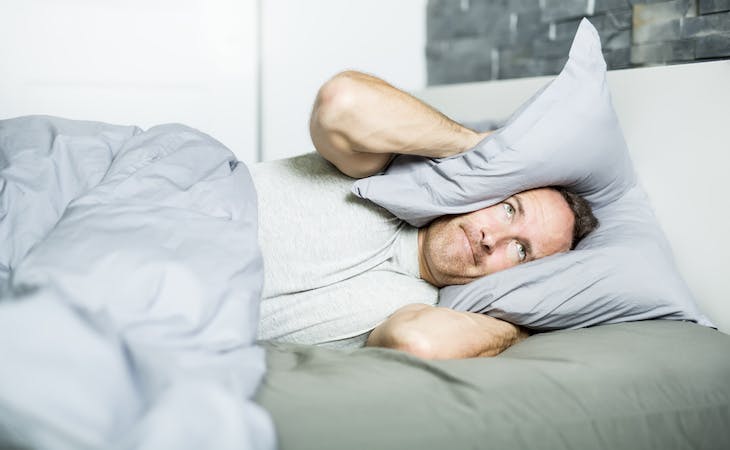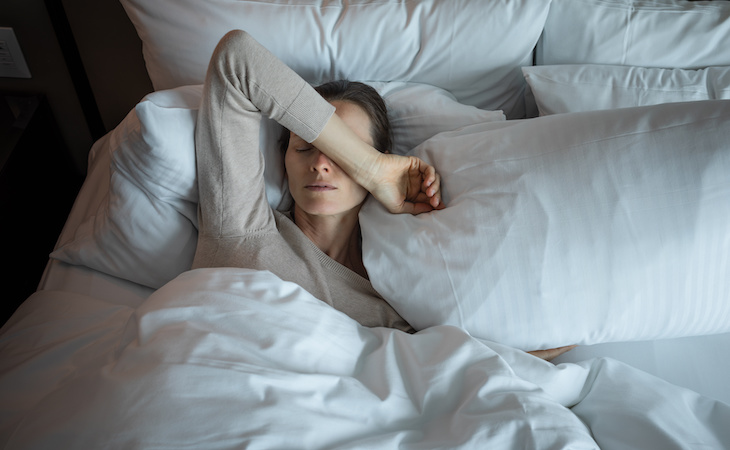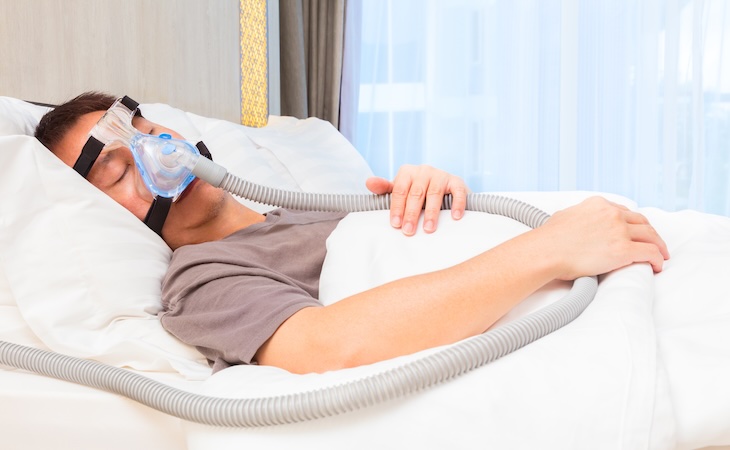If you experience a ringing, rushing, hissing, humming, buzzing, or other sounds in your ears, you’re not alone. Nearly 50 million Americans have tinnitus, an audiological and neurological condition that has no cure.
Tinnitus can be acute (temporary) or it can be chronic (ongoing) and persistent. When tinnitus persists for more than six months, it’s known as chronic tinnitus. While most people with chronic tinnitus get used to the ringing over time, one in five will find it disturbing or debilitating. It’s more common in people over age 55 and is strongly associated with hearing loss.
Sometimes, tinnitus can be so loud and distracting that it can interfere with a person’s ability to sleep, work, and socialize. According to tinnitus expert Pawel Jastreboff, PhD, for 4%-5% of the general population, tinnitus leads to significant suffering including severe sleep deprivation.
Here, learn more about what causes tinnitus and what you can do to prevent it from ruining your sleep.
What causes tinnitus?
Even though tinnitus is often associated with hearing loss, it hasn’t been found to cause hearing impairment. Likewise, hearing loss has not been found to cause tinnitus. Not only do some people with tinnitus have no difficulty hearing, but some are acutely sensitive to sound (a disorder known as hyperacusis).
Although the cause of tinnitus is unknown, several risk factors and conditions can trigger or worsen it. These include:
- cumulative noise exposure
- age-related hearing loss
- obstructions in the middle ear
- head and neck injuries
- alcohol use
- temporomandibular joint disorder
- obesity
- traumatic brain injury
- diabetes
- ear infection
- smoking
- certain medications (aspirin, anticonvulsants, cancer medications, non-steroidal anti-inflammatory drugs, diuretics, antidepressants, and antibiotics)
- medical conditions including thyroid problems, anemia, Lyme disease, fibromyalgia, high blood pressure, depression, anxiety, and stress
How does tinnitus affect sleep?
Sleep disturbance is a common and frequent complaint reported by people with tinnitus, with insomnia being one of the most oft-cited problems. Shifting from a daytime environment (with all the noises that come with it) to the quietness of the bedroom at night can make the noise from tinnitus much more noticeable and overwhelming, often leading to difficulty falling and staying asleep. And people with insomnia report more emotional distress from tinnitus.
Further complicating matters is that sleep deprivation can make tinnitus symptoms worse— creating a vicious cycle of sleep deprivation, impaired functioning, worsening tinnitus symptoms, and poor sleep.
How can you sleep better when you have tinnitus?
Here are some of the treatments and strategies that can help you cope with tinnitus and get the sleep you need.
- Use a white noise machine. Sound therapy is the use of external noise to alter a patient’s perception of, or reaction to, tinnitus. People with tinnitus may benefit from white noise or other sleep-friendly sounds that can mask and minimize their condition, providing relaxation and much-needed sleep.
- Focus on relieving stress. Stress can make ringing seem louder. Exercise, deep breathing, massage, acupuncture, and biofeedback can help reduce stress.
- Learn to cope with the sound. Tinnitus Retraining Therapy (TRT) depends on the natural ability of the brain to “habituate” to a signal—to filter it out on a subconscious level so it doesn’t reach conscious perception. There are two components to TRT. First, you’ll listen to neutral sound at all times, wearing in-the-ear sound generators. Then, you’ll attend one-on-one counseling. TRT provides relief for approximately 80% of tinnitus sufferers.
- Manage high blood pressure. High blood pressure can make tinnitus more noticeable, so work with your healthcare provider to keep your blood pressure in a healthy range.
- Limit alcohol intake. Excessive alcohol consumption can make tinnitus worse as well as wreak havoc on sleep quality. If you notice alcohol worsens your tinnitus, cut back on how much you drink. (Here are more ways alcohol messes with your sleep.)
- Pop a melatonin supplement. One study, published in the journal Otolaryngology-Head and Neck Surgery, has shown that melatonin supplements might help tinnitus, possibly by improving sleep.
- Talk to your doctor about medication. Medications used to treat tinnitus include anti-anxiety drugs, antidepressants, steroids, and a hormone called misoprostol. Don’t start or stop taking any medication without first consulting with a healthcare provider.
- Go to therapy. Cognitive behavioral therapy, or CBT, is a form of psychological treatment used to reframe negative thoughts, behaviors, and emotions. CBT is effective in several physical and mental health conditions, including stress, anxiety, and depression, and is highly effective in treating insomnia and other sleep problems. CBT is also considered an effective treatment option for tinnitus. Even though CBT doesn’t improve the acoustic aspect of tinnitus, in several studies, CBT has been shown to improve a person’s response to tinnitus.
- Take a combined approach to treatment. Interdisciplinary approaches to treatment are gaining popularity. A combination of counseling, sound therapy, CBT, and coping techniques can be very effective in helping manage reactions to tinnitus.
- Visit a support group. Many counseling and support groups are available to help people cope with tinnitus. It may be helpful for some to share tinnitus issues and concerns in a group setting. There are tinnitus support groups that meet in person, as well as internet forums. Resources for tinnitus sufferers include the American Tinnitus Association, the American Academy of Otolaryngology-Head and Neck Surgery Foundation, the American Academy of Audiology, and the British Tinnitus Association.
More from Terry Cralle:
- How to Put an End to Those Late-Night Bathroom Trips
- A Simple Way to Protect Yourself Against Alzheimer’s Disease
- 14 Things You Can Do Right Now for Better Sleep Tonight




